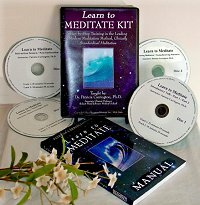Home » EFT FAQ » Is it possible to do too much EFT in a day?
Is it possible to do too much EFT in a day?
This question is an unusually challenging one and I will try to summarize the quite lengthy e-mail inquiry so you can know all that is involved.
This reader's inquiry addresses not only the question you see in the title above –– whether one can actually overdo EFT –– but is an example of how easily more fundamental considerations can be covered up by more surface ones. As you will see, the woman who wrote this presents us with a more serious and deep seated question which emerges as she tells her story.
She describes herself as suffering from DID (Dissociative Identity Disorder), a condition formerly known as "split personality" in which various sub-personalities or "alters" are split off or "dissociated" from the main personality. It is a seriously disabling condition in which often one sub-personality does not know what the others are doing.
Our reader describes herself as being fragmented in many directions, having many alters or sub- personalities. She has been working diligently with a therapist to help bring together these many fragmented parts of herself, although at times this has seemed to her to be an almost hopeless endeavor.
Like so many people who suffer from DID, she was severely abused in childhood. She is a ritual abuse survivor who is hoping that EFT, which she has been using on her own for some time now, will help her deal with her painful memories. Fortunately it has been doing that to some extent, but she finds that even the use of EFT (although it seems to help clear certain feelings) AFTERWARDS results in painful emotions, disturbing memories of the ritual abuse and often uncontrollable crying. She relates that she has tried the Tearless Trauma Technique but that it hasn't worked for her. However, she describes her crying reaction as "just part of the grieving, it just has to be done is how I see it."
It appears that agonizing tears and grieving is, in fact, a continuing part of her life. She reports being re-traumatized by "poor therapy" in the past, where she was told to get all her painful memories out and that the more she remembered them the faster she would heal, but in fact the opposite happened. Over the course of the 13 years in which she was in this form of therapy and constantly recalled the agony of her childhood, the main result was that she developed severe phobias and panic attacks because of the terrifying memories that were NOW shared with the whole system and no longer locked away in little compartments of her personality.
She writes that since she started doing trauma work she has been told that "it is a painful journey and that you have to get through the pain to get the healing, and you have to do this over and over again". She also says that everyone she knows who suffers from DID (she belongs to a DID support group) has had this "really drummed into their heads" and are suffering through a lot of pain now, whether in or out of therapy.
Obviously this woman's question has many aspects to it. Here is my response:
Answer: Let me say first that actually, you pose two different questions. One is a simple question about the frequency with which it is safe to use EFT (in general), but the other, I think probably the most important question, is about how you can best use EFT to heal your traumas while at the same time reducing the continuing emotional pain that you experience.
Let me answer the first question first. I don't ordinarily give much thought to whether a person can overdo EFT because we are usually trying to get people to remember to use EFT at all. But the fact is that any beneficial activity can be overdone, and if it is, any intervention can have somewhat negative effects.
Take exercise for example. It can be an extremely useful and health promoting practice in our lives, but it can also be overdone, as any sports doctor will tell you as they treat injuries to knees, feet and other parts of the body resulting from, say, such a generally beneficial practice such as jogging. The right amount –– is good. Too much –– not good.
In the same way, nutritional supplements can be important aids to health if used appropriately, but if you take too many of them, or too much of any single one, you may create exactly the opposite result to the one you intend.
Another example. I have had many years experience teaching modern forms of meditation in clinical settings and I find that occasionally someone will overdo meditation to their detriment. Such a person will decide that if 20 minutes twice a day feels so good or is so beneficial, then 3 or 4 hours of meditation a day will be that much better!
This is not the case. Too much meditation in a person who has any instability in their personality can actually cause buried memories and "unconscious" material to rise to the surface too fast and can even cause episodes of mental illness in a person so disposed. The ancient proverb "Moderation in all things" is therefore wise to remember with meditation, and would seem to be useful to follow with regard to EFT as well, although my observation is that people have much more tolerance for large doses of EFT them they do for meditation because EFT is not nearly as inward-turning and contemplative an activity.
Now to the part of your question that refers to the pain of the memories and the crying which you frequently experience following EFT. Although I haven't worked with you and so there is much I do not know about you, I would suggest that what needs to be done here may be to first re-evaluate the way you use EFT, rather than make any cut and dried decision about how OFTEN you should use.
I would suggest that you be on guard against unwittingly using EFT as a means of inflicting still more pain on yourself. Let me explain…
If you see EFT as inevitably producing pain, you may, without realizing it, actually be endorsing the concept which you so dislike, the philosophy of "no pain, no gain" in psychotherapy. By seeing EFT as inevitably leading to tears and distress, you may therefore be promoting its use in a less than constructive manner.
I therefore think the most valuable thing you could do at this point might be to address this "no pain, no gain" concept with regard to EFT. If you have learned (or are considering learning) the Choices Method, some EFT Choices might be extremely useful here. The Choices Method takes EFT to a whole new level, and certain EFT Choices could be created that could make the whole process of using EFT much smoother for you, and more targeted to your individual needs.
For example, you might consider using the following Choices Set-Up phrase to address this issue: "Even though I think I have to go through all this pain to get well, I choose to heal gently and painlessly."
Although this statement may violate a (perhaps unconscious) belief of yours which is that pain is needed to counteract pain — I suggest that you TRY it. My opinion on reading your letter is that you've cried enough about this and that it's time for some kindness and gentleness to be introduced into the picture –– kindness FROM yourself TO yourself.
Along these lines, another useful EFT Choice might be: "Even though I think I have to go through all this pain to get well, I choose to be gentle and loving with myself as I heal."
If you know the "Choices Trio" (it's described in my Choices Manual) I think it would be very beneficial to use that here because the Trio greatly increases the emphasis on the POSITIVE part of the EFT Set-Up, and I'm getting remarkable results with it.
To sum up my response to your question, I am suggesting that you work directly on the EFT process itself first, and perhaps change how you're using it, and that you do this by using EFT itself to make the change!
This could lead to changes in your attitude which extend far beyond the EFT process. We all know that survivors of abuse, who have never been treated gently by others, are not apt to be gentle with themselves. Perhaps this can be a starting point for a new era in your life, one filled with self understanding and self-care and much more constructive self-love.
With all my best wishes for your healing-to-come,
, EFT Master



